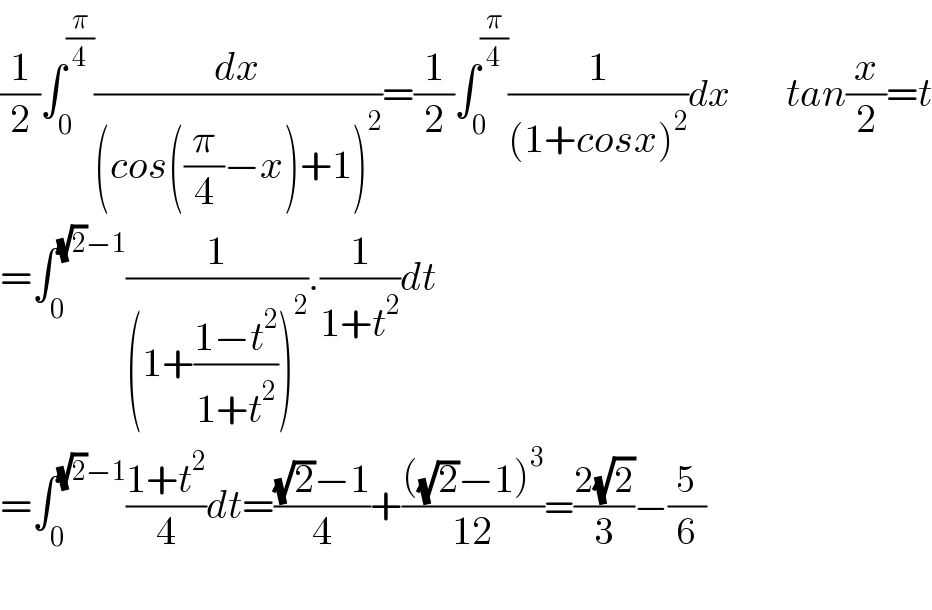
Question and Answers Forum
Question Number 129180 by mnjuly1970 last updated on 13/Jan/21

Commented by Dwaipayan Shikari last updated on 13/Jan/21

Commented by mnjuly1970 last updated on 13/Jan/21

Answered by Dwaipayan Shikari last updated on 13/Jan/21

Commented by mnjuly1970 last updated on 13/Jan/21

Answered by MJS_new last updated on 13/Jan/21
![∫(dx/((sin x +cos x +(√2))^2 ))= [t=x+((5π)/4) →dx=dt] =(1/2)∫(dt/((1−sin t)^2 ))= [u=tan (t/2) → dt=((2du)/(u^2 +1))] =∫((u^2 +1)/((u−1)^4 ))du=−((3u^2 −3u+2)/(3(u−1)^3 )) ⇒ answer is −(5/6)+((2(√2))/3)](Q129196.png)
Commented by mnjuly1970 last updated on 13/Jan/21

